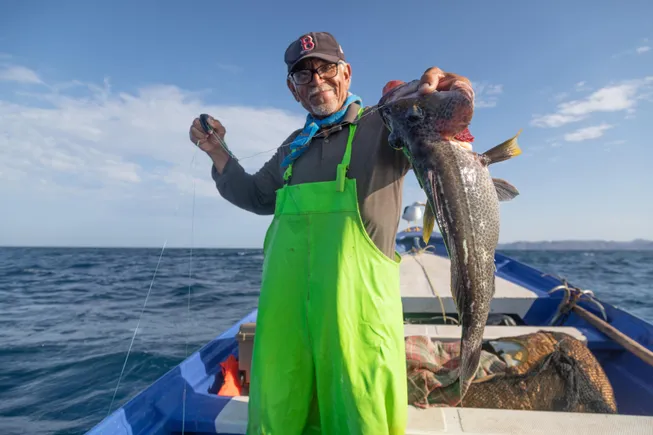The seafood industry must recognize that healthy seas require safeguarding human rights

On June 8th, people worldwide will participate in beach cleanups, visit aquarium touch tanks, and attend sustainable seafood tastings as part of World Oceans Day. This annual global celebration established by the United Nations to raise awareness about the vital role oceans play in our lives and the importance of protecting them can put a fun spotlight on the need to safeguard our ocean ecosystems. Behind the festivities, however, the seafood industry faces a sobering reality check that goes beyond just the health of our oceans.
Over the past few months, investigations have exposed rampant human rights abuses, unsafe working conditions, low wages, and child labor across seafood supply chains. And the EU’s recent ban on goods produced by forced labor highlights the global scale of these problems.

Optional Caption
Permission granted by Ryan Bigelow
The steady drumbeat of human rights and labor violations serves as a warning to seafood businesses of all sizes – from global supermarket chains to family-owned restaurants. While the industry has made strides in becoming more environmentally responsible, it’s clear it must now also hasten efforts to eliminate human and labor rights abuses. Failing to do so will result in consumer backlash, customer loss, reputational damage, and legal repercussions.
Just as important, it has become obvious that environmental and social responsibility are intrinsically linked: if a company mistreats its people, it is likely also to disregard environmental concerns, and vice versa. This interconnectedness underscores the importance of companies embracing a holistic approach to sustainability, addressing the well-being of workers and the planet.
Seafood businesses can no longer afford to turn a blind eye to their social impacts. The court of public opinion is in session with viral documentaries like “Seaspiracy,” and hard-hitting podcasts like “The Outlaw Ocean” shining a glaring spotlight on unethical practices. These revelations are fueling a consumer awakening.
This isn’t a passing fad – it’s an existential threat to businesses that fail to take action. A 2023 NielsenIQ study leaves no doubt: products with legitimate environmental and social credentials are outpacing those without such claims at a staggering rate. And the demographics don’t lie – higher-income households are leading this charge, a pivotal segment no company can afford to alienate. Previous data revealed an even more chilling reality: two-thirds of consumers would abandon any brand exposed to worker exploitation. In this era of radical transparency, businesses have two choices: evolve or risk losing the very customers they depend on.
The complexity of global seafood supply chains cannot be an excuse for inaction, especially given the heightened vulnerability of workers involved in operations that largely take place in remote high-seas areas far from regulatory oversight, or in countries where auditing firms have limited ability to monitor supply chains effectively. While the process of addressing unethical practices may seem daunting and is neither cheap nor easy, the benefits far outweigh the risks of complacency.
As we observe World Oceans Day, companies can start by embracing the mantra “you can’t fix what you don’t know.” Rigorous supply chain due diligence isn’t just advisable – it’s essential for survival. The very act of examining their sourcing networks yields exponential rewards. Thorough analysis and a commitment to transparency lay bare areas of concern, put pressure on antiquated systems, and forge new pathways toward progress. Whether enforcing robust labor standards with suppliers, investing in sustainable sourcing, or seeking ethical alternatives, companies can future-proof their operations while catalyzing reforms that echo across global supply chains.
Businesses need not go it alone. Organizations like the Conservation Alliance for Seafood Solutions offer guidance and resources to help identify and mitigate risks. Industry leaders like Aldi and Albertsons have made promising sustainable seafood commitments, demonstrating that progress is possible.
While the seafood industry’s challenges are substantial, so too is the potential for transformation. This World Oceans Day should serve as a catalyst for prioritizing social responsibility, driving positive change, fostering inclusivity, and creating ethical supply chains that safeguard workers and the environment. Embracing this imperative is crucial not just for the future of the seafood industry but for the very oceans we depend on.
Source: fooddive.com

